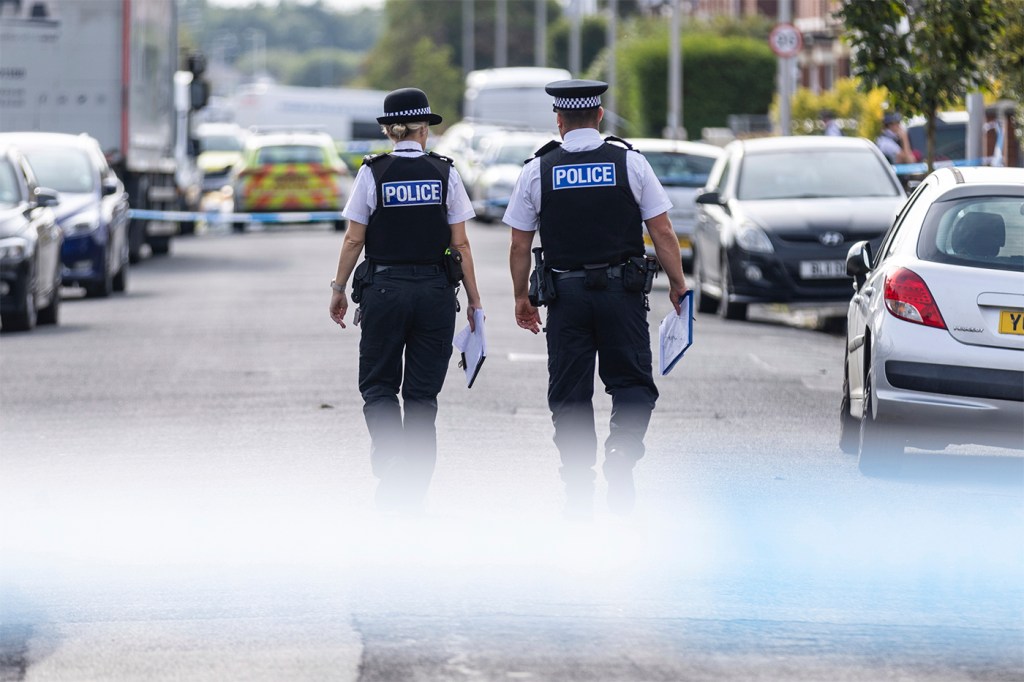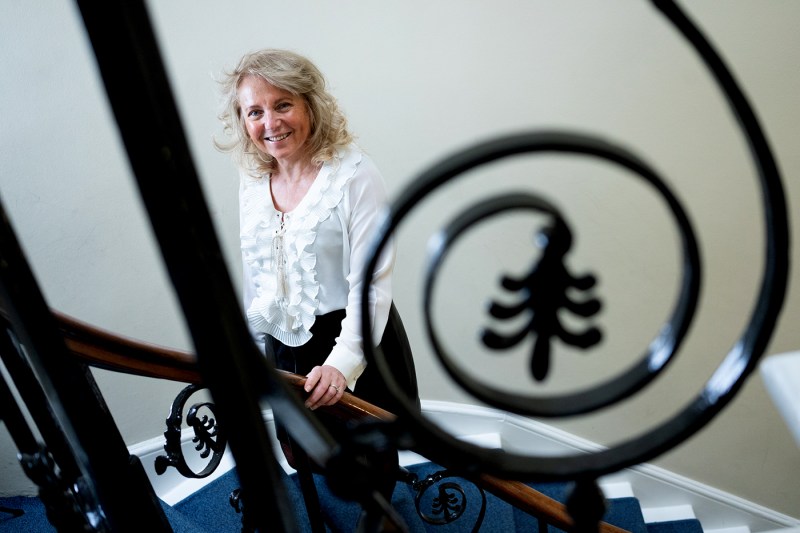A knife attack left three young girls dead and sparked riots in Southport. So why can’t the British press name the suspect?
Northeastern media law expert Ursula Smartt explains why the 17-year-old suspect has the right to anonymity under U.K. law.

Editor’s note: The name of the murder suspect, Axel Rudakubana, 17, has been released by a judge who ruled Thursday against concealing his identity.
LONDON — The seaside resort of Southport is usually in the throes of a tourism boom during the summer months.
But the town, situated about 20 miles north of Liverpool, is in the limelight for far more tragic reasons this week. Three young girls — Bebe King, 6, Elsie Dot Stancombe, 7, and Alice Aguiar, 9 — were killed in an alleged knife attack Monday at a Taylor Swift-themed holiday club.
Eight children and two adults, including one thought to have been the group’s dance instructor, were also injured, with several of the surviving victims understood to be in a critical condition.
After a vigil in Southport for the victims, riots broke out onto the streets Tuesday with reports of about 200 protesters clashing with police as they targeted a local mosque. Police vans were set on fire and dozens of officers were injured in the clash.
Politicians, including Deputy Prime Minister Angela Rayner, have blamed supporters of far-right groups for targeting the Islamic place of worship after “untruths” were spread on social media about the alleged suspect having Muslim links.
A 17-year-old from the village of Banks, five miles away from Southport, was arrested on Monday on suspicion of murder and attempted murder.
It is known that the suspect, who police on Tuesday were given more time to question, was born in Cardiff, Wales, to Rwandan parents and moved to the Southport area in 2013.
Despite these biographical details being made available, the British press are not able to name the suspect. Merseyside Police have warned that one name being shared online in relation to the attack is not the person they have under arrest.
Ursula Smartt, an associate professor of law at Northeastern University in London, explains that there are two legal obstacles in the way of naming the suspect.

Firstly, at the time of writing, the individual in question has not been charged [they were later charged and appeared in court on Wednesday], meaning that there was still a reasonable expectation of privacy for any suspect.
Secondly, they have anonymity as a person under the age of 18 — the threshold for adulthood in the U.K.
“The problem here,” says Smartt, a media law expert, “is that of course the local community in Southport will know exactly who this is.
“This [his name] will have been put out by the local community and the people who came to try to rescue these children. Southport is a sleepy seaside town, and it is a terrible atrocity that has happened. So the local community will have seen the attacker but the law is clear.”
Most media publishers in Britain have signed up to a code of conduct that accepts they should avoid naming children under 18 after their arrest for a criminal offense.
There are also punishments written into law for those electing to name an underage suspect.
“If a British journalist were to say, ‘I’m going to publish the name and who it is’ because they can easily find that out, then that journalist would be in contempt of court,” Smartt says. “And the journalist, their newspaper, the publishers of that paper would be in contempt of court and could be fined and, at the very most, there could be a two-year prison sentence.”
The reason for providing suspects and defendants who are under 18 with the right to anonymity in the press is two-fold, Smartt explains.
“The reason why the law is such — that you cannot name a young offender — is in order to protect the families,” she says.
“That is the idea behind all this. It is not only to protect the youth but to protect the family. There might be brothers and sisters. Most likely that family of the attacker will have now been put in secure accommodation by the police.
“And they will probably have to be in such accommodation with new identities for the rest of their lives because they are at risk of attack.”
With the suspect’s name not being able to be published by the British media, Smartt notes that this has led to a scenario where people are going on to social media to try to find out who the alleged attacker was.
“We don’t know the motive, we have no idea,” she continues. “People are speculating. But because social media has been so active on this, saying ‘This was a Muslim attacker,’ that is when the right-wing defense leagues started to mobilize.
“On top of the grief the town is already experiencing, you now get these terrible attacks happening and this awful violence.”
Featured Posts
Smartt is the author of the textbook “Media & Entertainment Law.” In her sixth edition of the book due out next year, she argues that Britain’s contempt of court laws are in need of updating to reflect the way international online news reporting has changed.
“The contempt laws are well out of date,” she says, “because you can read about any of this online via a Canadian, American or Australian newspaper. But yet a British journalist is not allowed to publish any details of the case until the trial is live.”
Even during a trial, Smartt says reporting restrictions will mean that a suspect under the age of 18 will not be allowed to be named by U.K. media.
But Smartt says there have been notable examples when judges have chosen to remove a young person’s right to anonymity after a trial has concluded if their crimes were deemed to have been “heinous.”
This year, teenagers Scarlett Jenkinson and Eddie Ratcliffe, who could not be named during their trial for the murder of transgender 16-year-old Brianna Ghey, had their identities revealed after reporting restrictions were lifted following their conviction.
If a suspect reaches the age of 18 before a trial takes place, then restrictions are likely to be lifted except in rare cases where there is another legal obstacle.
Charged suspects who are 18 or older can in most circumstances be named in the media unless reporting restrictions are imposed by a judge.












